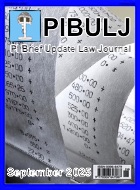David Richardson & Ors v Slater & Gordon UK Limited [2025] EWHC 1220 (SCCO) - Andrew Ratomski, Temple Garden Chambers

13/06/25. Date of judgment: 19 May 2025.
This judgment concerned a group of 224 claims against solicitors, the Defendant, from which ten test claimants were identified. Senior Costs Judge Rowley was asked to determine nine preliminary issues in respect of conditional fee agreements entered into with the Defendant and the information provided orally and in writing when those agreements were entered into.
Evidence
The judge heard evidence from four of the ten test claimants (as six others did not attend the trial) and one witness on behalf of the Defendant. The judge considered the witness evidence at length and found there to be in material respects inconsistencies between the claimant witness’ statements and evidence given during cross-examination when each was taken to relevant contemporaneous documents. The judge also expressed doubts as to whether each witness statement was in a claimant’s own words with the final paragraph of each statement being singled out for criticism. These issues with the evidence made it more difficult for the claimants to make good their arguments about what information was and was not provided at the outset of the client/solicitor relationship.
Decision
The judge made a number of findings about the construction and effect of the agreements entered into. The most notable findings were these.
The judge rejected the argument that the agreements were designed to take 25% of a claimant’s damages “come what may” and found there was no direct evidence to support that contention. The deduction was understood as one “up to”25%.
As to the explanations given to the claimants when signing up to the retainers, the judge rejected the argument that information as to the detailed workings of the conditional fee agreements and other documents was needed by way of oral explanation up front. The judge held that the key points of the contract were provided by way of oral explanation with more detail then available in the documentation. Those points were pithily summarised as follows:
“101. The “main characteristics” of the service provided were plainly the legal services to bring the claim. In response, the claimant was obligated to pay the base fees, disbursements and success fees in the event the case was successful and subject to any sums capable of being recovered from the opponent. Such obligation to pay was limited to 25% of the claimant’s damages. In the event the claimant was unsuccessful, the claimant was under no obligation to pay the solicitors either in respect of their own charges or their disbursements.”
That is perhaps a model summary of how a standard conditional fee agreement operates.
As to the issue of whether claimants with issued claims had given their informed consent to the charging of sums in excess of those which the client had recovered from an opponent, the judge also rejected this challenge. The claimants did not need to provide informed consent and mere agreement to the fees paid exceeding the costs that might be recovered in a successful claim was sufficient:
“134. I have set out elsewhere in this judgment my view that a time spent or hourly rates agreement with a client is the most common basis for a retainer, even if a fixed fee is agreed with the client (and not simply potentially recoverable from an opponent.) As such, I do not consider such an agreement to be unusual in nature or amount.”
The judge also rejected the argument that the terms as to payment and the claimants’ liabilities were unfair within the meaning of section 62 of the Consumer Rights Act 2015.
As to the reasonableness of the success fees, the judge approached the issue as a trial judge assessing the risk of a CFA would:
“It has always been the case that a costs judge assessing the success fee needs to put themselves into the position of the solicitor when entering into the CFA. Hindsight in the form of seeing how the case turned out is not relevant. Here, I have been able to consider the documents filed in the bundle for each case at the time the onboarding process took place.”
The judge considered the circumstances of each claimant in some detail before concluding the success fees were reasonable (albeit for reasons particular to each claim).
Discussion
This is an important judgment that discusses a number of common features of conditional fee agreements and in this case, a set of agreements that were widely used. The decision indicates parties wishing to challenge those agreements face real difficulties where the court is satisfied that information made available “up front” was sufficient and readily comprehensible.
https://caselaw.nationalarchives.gov.uk/ewhc/scco/2025/1220?query=Slater+gordon
Image ©iStockphoto.com/wildpixel












![Appeal judge rules that credit hire company has no costs liability following a finding of fundamental dishonesty in personal injury case: RSA v. Fastrack Solutions Limited [2023] 4 WLUK 92 - David Bowden, Erimus Chambers](/content/images/resized/images/stories/carkeys_72_72.jpg)


